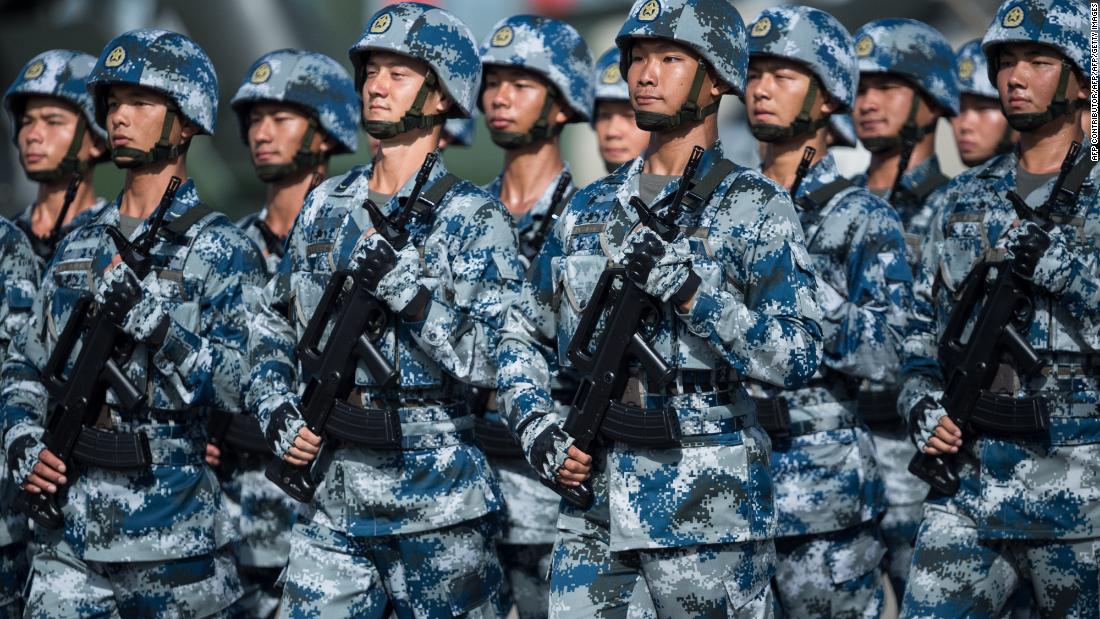
In a statement, China's military said the "annual normal routine action" had been carried out with the approval of the Central Military Commission and the troops would "resolutely safeguard national sovereignty, security, and development interests, effectively perform Hong Kong's defense duties, and safeguard Hong Kong's prosperity."
The People's Liberation Army troop movements were carried out in the dead of the night, and took place at the same time as a rotation of the garrison in neighboring Macao. They were announced by Chinese state media early Thursday morning.
While the rotation occurred at almost exactly the same time as last year, any PLA movements are tightly scrutinized for suggestions the military could be deployed to Hong Kong's streets to tackle the ongoing unrest.
The move also came as Chief Executive Carrie Lam would not rule out using emergency powers -- which would give her the right to pass new laws without the approval of legislators -- if violent protests continue.
Police have denied permission for a major protest planned by the Civil Human Rights Front on Saturday. The CHRF previously organized three peaceful marches it said attracted more than a million participants. Organizers said they are appealing the police decision.
City on edge
While fears about a military crackdown have often focused on visions of PLA tanks crossing the border, the military has had a major presence in Hong Kong since the city was handed over from British to Chinese control in 1997.
The 6,000-strong garrison largely avoids public view, however, aside from displays to mark key anniversaries or the visits of Chinese officials, such as when President Xi Jinping inspected troops in 2017 to mark 20 years of rule from Beijing.
Under the city's constitution, the Hong Kong government can request the assistance of the garrison "in the maintenance of public order and in disaster relief."
Administration and police officials have repeatedly denied any need to call on the military, even as the protests have taken an increasingly violent turn.
This has not stopped the rampant concern that a crackdown could come at some point, which has been boosted by a large buildup of paramilitary forces across the border in Shenzhen.
While most analysts agree that the presence in the Chinese city of the People's Armed Police, a force under the military commission, is likely intended to send a message to domestic audiences that the government is in control and will not allow unrest to spill over the border, it has caused concern among many in Hong Kong.
Lam's apparent suggestion that she could invoke emergency powers has deepened that concern. Police resources have been stretched by the months-long protests, and were the government to institute a curfew or other radical action that such a move would allow, it's likely they would require reinforcement, potentially from the military.
If anything will stay the government's hand in sending in the troops it is the effect it will likely have on the city's finances. Any echo of the 1989 Tiananmen Square massacre, in which troops were deployed to clear pro-democracy protesters from the center of Beijing, could send Hong Kong's stock market crashing and foreign business fleeing, potentially dooming an already suffering economy.
No comments:
Post a Comment